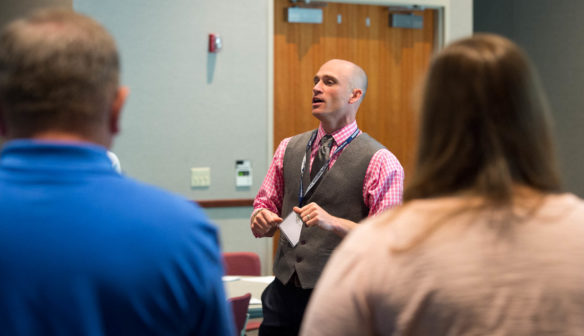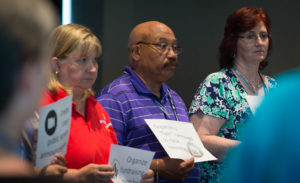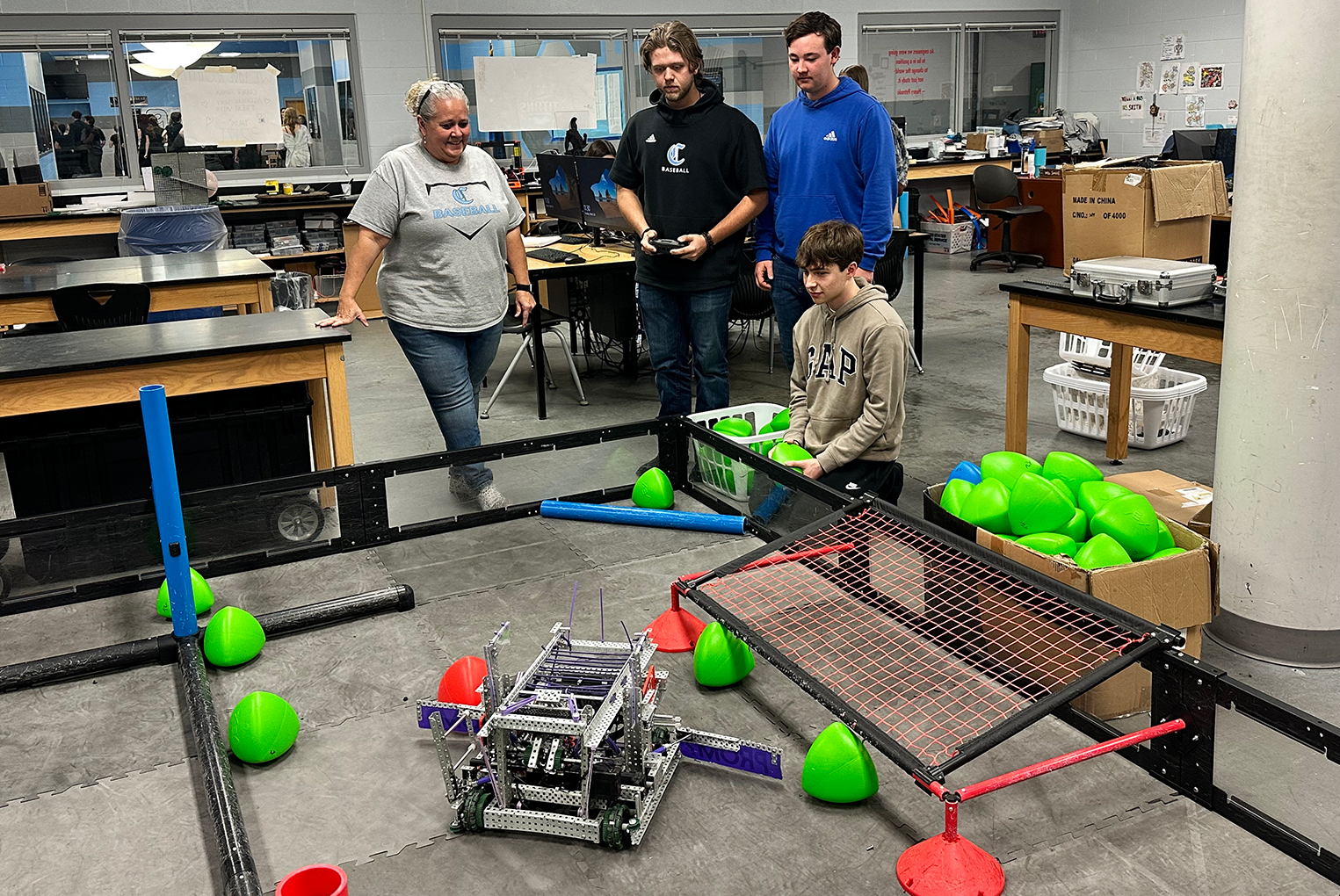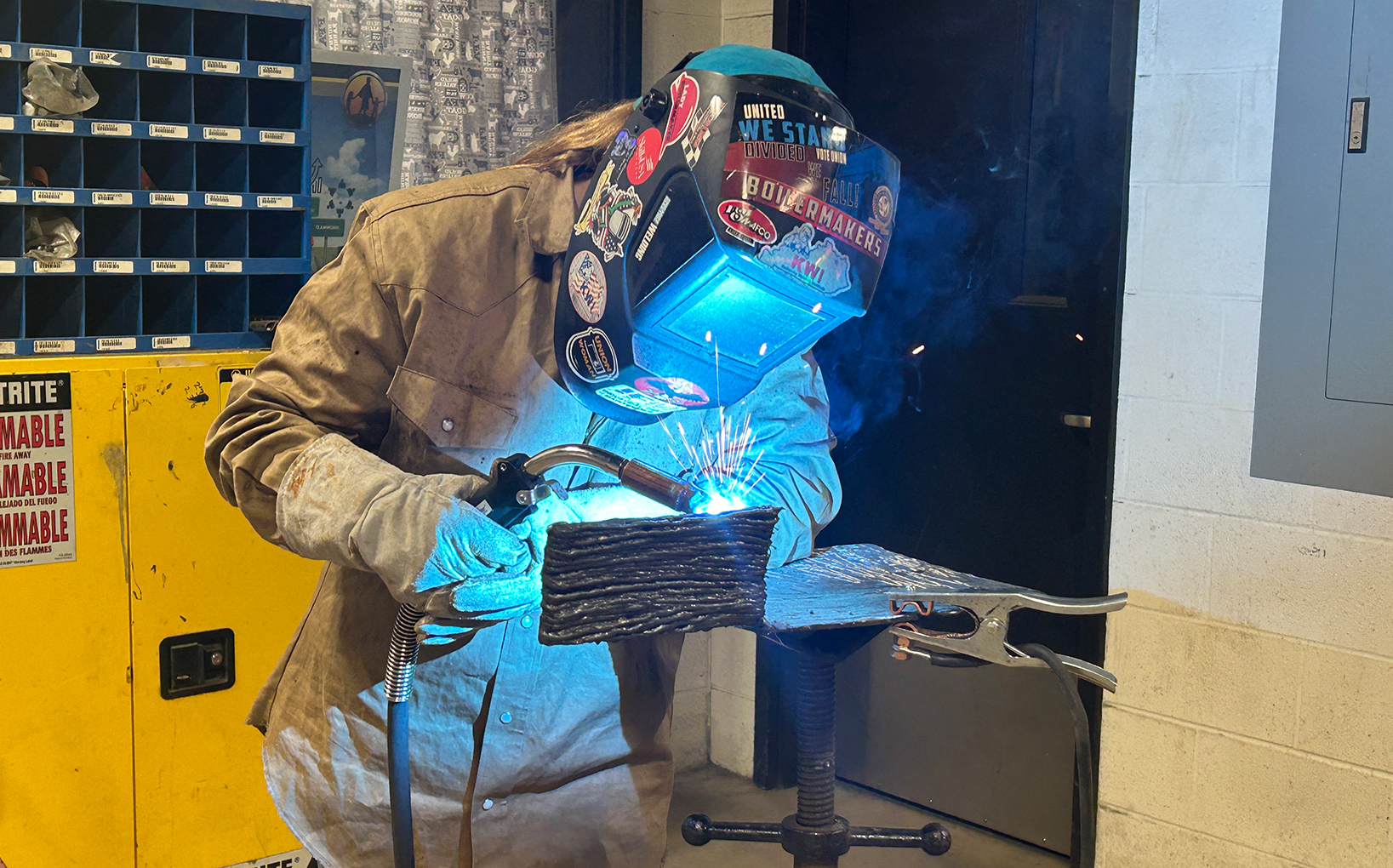
Ryan New, a social studies teacher at Boyle County High School, discusses having students take action during the Kentucky History Education Conference.
Photo by Bobby Ellis, June 23, 2016
By Brenna R. Kelly
Brenna.kelly@education.ky.gov
Imagine students being taught chemistry but never doing experiments in a laboratory, or being taught to play violin, but never picking up one to drag the bow across the strings.
That’s what often happens in social studies classes, said Ryan New, a social studies teacher at Boyle County High School.
“We talk about democracy and citizenship, but we don’t really give students a good chance to go out and do things – to be citizens where they are,” New said. “Our students shouldn’t have to wait until they are graduated to be told they are now citizens.”
As social studies instruction moves beyond mere content knowledge to embrace the practices of the inquiry cycle – in which students learn how to question, evaluate and communicate – students will be expected to show what they know and can do using the information and knowledge they have gained, New said.
Part of that includes taking informed action.
“We are talking about taking what we do in the classroom and giving it a little more relevance,” he said.

Louis McHenry, a teacher at Barret Traditional Middle School (Jefferson County) takes part in an exercise showing some of the ways students can take action during a social studies conference at the Kentucky History Center in Frankfort.
Photo by Bobby Ellis, June 23, 2016
New and Todd Johnson, a social studies teacher at the Kentucky School for the Blind, helped fellow social studies teachers understand what taking informed action can look like in their classrooms during a recent session at the Kentucky History Education Conference at the Thomas D. Clark Center for Kentucky History.
Taking informed action is a key aspect of the inquiry practices found in the draft of the Kentucky Academic Standards for Social Studies, which is under review by the Kentucky Department of Education (KDE), said Jennifer Fraker, KDE social studies consultant.
The ability to take action comes after students learn to develop questions, plan inquiries, apply disciplinary tools and concepts, evaluate sources and use evidence, she said.
“The draft supports students in learning to be actively engaged in civic life,” Fraker said. “Engagement in civic life requires knowledge and experience. Children learn to be citizens by working individually and together as citizens. Practicing those habits and skills is an essential element of social studies education.”
In order to allow students to practice being democratic citizens, teachers must be willing to make their classrooms more democratic, Johnson said.
“This has caused me to think about my classroom and the amount of control that I love to have in my classroom,” he said. “And it’s causing me to think differently, to seek out this idea of a democratic classroom.”
It’s much easier for the teacher to create an assignment than to allow students to choose their own action, he said. But that means students could have to take action on an issue they don’t feel passionate about, he said. Asking students to write letters to lawmakers or the president about an issue can easily become a simple English assignment.
“It’s removing it from the student and placing it on the teacher. That’s not necessarily how democracy works,” Johnson said.
Instead, teachers should give the students the resources and tools they need to be able to take action about an issue that’s important to them, he said. For example, if students are passionate about school lunch, let them figure out what it takes to change a school lunch menu.
And if the students’ actions don’t produce the intended results, that’s OK, he said.
“Failure is a big part of this, they are going to fail. That’s something we struggle with at our school, where all of the students are blind or visually impaired,” Johnson said. “But they are going to learn a lot more from their failures – from not being able to change the school lunch – and look back and see what could have been a different way.”
Some teachers may have a hard time giving up control of an assignment or changing the way they’ve always taught a particular unit, New said, but it’s what students need.
“Democracies are messy, very very messy,” he said, “but the alternative is for us to pack the kids on our backs every day and walk them through everything.”
New plans to have students choose an action related to the presidential election this year. Students will have to compare and contrast the candidates, assess the ramifications of each candidate’s policies and ultimately choose an action – vote, join a political party or campaign for a candidate.
Last year, Johnson’s class put together a three-question survey asking KSB students about things that help them at the school, things that are barriers to learning at the school and about their concerns.
This year his students will go through the answers and choose issues they want to address to make positive changes at the school.
“This is all going to be student-led,” Johnson said.
The actions students take will differ depending on ability, school and other factors, Johnson and New said. One class may be able to create a Facebook page around a topic, another may be able give a presentation to another class and another may be able to organize a rally.
Pam Rowland, a 7th-grade social studies teacher at Rowan County Middle School, said she was looking for ways to expand upon the schoolwide project-based learning initiative her school started last year.
The initiative was based around combating community hunger and students volunteered at a local soup kitchen.
“It was pretty intense,” Rowland said. “So I’m interested in how to keep it going next year. It’s the same thing as taking informed action and we talked to our kids about how they can help the community.”
In her civics class at North Laurel High School (Laurel County), Denise Peters tries to find ways for her students to get involved in the community.
“One of the biggest things we as teachers need to realize is that we have to find what the kids are passionate about and then they will get involved,” Peters said.
New challenged the teachers to empower their students take informed action on an issue once this coming school year, then try it twice next year.
“Imagine if students were used to doing something like this every single grade,” he said. “After 10 years, they might be ready to do some amazing things.”
MORE INFO …
Ryan New Ryan.New@Boyle.kyschools.us
Todd Johnson Todd.Johnson@ksb.kyschools.us



Leave A Comment